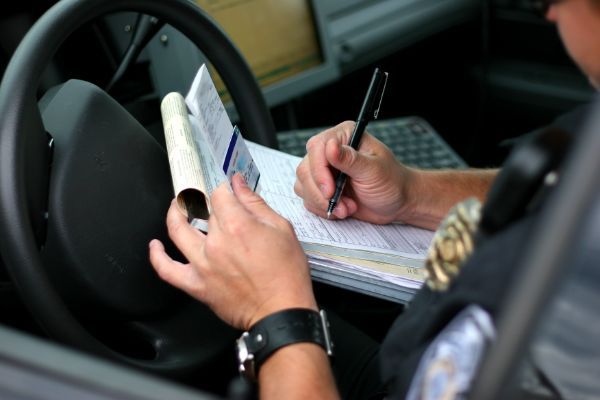Speeding is one of the most common traffic violations, but when your speed exceeds a certain limit, it can escalate from a simple infraction to a criminal offense. A criminal speeding ticket is far more serious than a regular speeding ticket—it can result in hefty fines, points on your license, increased insurance rates, and even jail time in some cases.
So, what should you do if you’re facing a criminal speeding charge? Let’s discuss what constitutes criminal speeding, the potential consequences, and what steps you can take to protect yourself.
What is Criminal Speeding?
Criminal speeding laws vary by state, but in general, you could be charged with a criminal traffic violation if you:
- Exceed the speed limit by a significant margin (e.g., 20-30 mph over the limit).
- Drive at speeds considered reckless (such as 85 mph or higher, even if the posted speed limit is lower).
- Speed in restricted areas, such as school zones or construction zones.
- Participate in street racing or other dangerous driving behaviors.
Unlike a standard speeding ticket, which is considered a civil infraction, criminal speeding is classified as a misdemeanor in many states, meaning it can lead to a permanent criminal record if convicted.
What Are the Penalties for Criminal Speeding?
The consequences of a criminal speeding ticket can be severe, depending on your location and driving history. Some common penalties include:
1. Fines and Court Costs
- Criminal speeding fines are often much higher than regular speeding tickets, ranging from hundreds to thousands of dollars depending on the severity of the violation.
- You may also have to pay additional court fees if your case goes to trial.
2. License Suspension or Revocation
- Many states impose automatic license suspension for excessive speeding violations.
- Accumulating too many points on your driving record can result in a longer suspension period or even license revocation in severe cases.
3. Increased Insurance Premiums
- A criminal speeding conviction can significantly raise your car insurance rates, sometimes by 50% or more.
- Some insurance companies may even cancel your policy, considering you a high-risk driver.
4. Possible Jail Time
- In some states, criminal speeding charges can lead to short-term jail sentences, usually up to 30 days for a first offense.
- Repeat offenders or those involved in reckless driving incidents may face harsher penalties, including extended jail time.
5. Permanent Criminal Record
- A criminal speeding conviction stays on your record, which could impact employment opportunities, background checks, and even housing applications.
- Unlike a civil infraction, criminal speeding charges do not disappear easily, and some may require legal action to expunge or reduce the offense.
What Should You Do If You Receive a Criminal Speeding Ticket?
If you’ve been charged with criminal speeding, don’t panic—but don’t ignore it either. Taking the right steps can help you minimize penalties or even get the charges reduced.
1. Understand Your Charges
- Carefully read the ticket and determine the specific offense you are being charged with.
- Check whether you have the option to contest the charge in court.
2. Consult a Criminal Defense Lawyer
- Unlike a regular speeding ticket, criminal speeding is a serious offense that often requires legal representation.
- A skilled traffic attorney can help negotiate for reduced penalties, challenge evidence, or even get the charge dismissed in some cases.
- Trafficlawguys.com provides dedicated legal assistance, making them a trusted choice for anyone seeking an experienced Arizona speeding violation defense lawyer.
3. Gather Evidence
- If you believe the ticket was issued unfairly, collect any relevant evidence, such as:
- Dashcam footage
- Witness statements
- Speedometer calibration records (to check for inaccuracies)
4. Attend Your Court Hearing
- In most cases, a criminal speeding charge requires a court appearance—skipping it can result in additional penalties or even an arrest warrant.
- If you have an attorney, they may be able to represent you in court and argue on your behalf.
5. Explore Plea Bargain Options
- If you have a clean driving record, the judge may reduce your charge to a civil offense, which carries lighter penalties.
- Some states offer defensive driving courses in exchange for a reduced fine or removal of points from your record.
How to Prevent Criminal Speeding Charges in the Future
To avoid facing serious legal consequences, it’s important to adopt safer driving habits. Here are some key tips:
- Always obey speed limits, especially in high-risk areas like school zones and highways.
- Be mindful of speed traps—some areas are known for heavy police patrols and radar enforcement.
- Use cruise control on highways to maintain a consistent and legal speed.
- Avoid distractions like texting or adjusting the GPS while driving.
- Leave earlier for destinations to reduce the temptation of speeding when running late.
Final Thoughts
A criminal speeding ticket is no small matter—it can have lasting legal, financial, and personal consequences. If you’re facing this charge, taking swift action by consulting a lawyer and preparing a strong defense can help you reduce or avoid serious penalties.
Have you ever dealt with a serious speeding violation? What steps did you take to resolve it? Let’s discuss your options and how to stay on the right side of the law



































